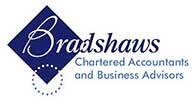P11D filing to end
HMRC is scrapping the use of Form P11D to report benefits in kind from 2026. How will you need to account for tax and NI due after this?

Currently, over 4m P11D returns are filed each year. The forms are used to report taxable benefits in kind, e.g. company cars, and set out the taxable amount for the employee and the Class 1A liability for the employer. It is possible to account for benefits via the payroll system, but in some cases a Form P11D is still required to pay the Class 1A liability. HMRC has announced that from 6 April 2026, it will be mandatory to payroll all benefits in kind, with both tax and Class 1A paid via the payroll system.
There is no further detail at present, e.g. we don’t know whether Class 1A will be payable monthly during the tax year or in one payment by 6 July after the tax year end (as is the case now). Draft legislation will be published later this year.
Related Topics
-
Who can't yet sign up for MTD IT?
Making Tax Digital for Income Tax (MTD IT) becomes mandatory from April 2026 for sole traders and landlords with qualifying income over £50,000. However, HMRC’s current guidance makes clear that not everyone can sign up yet. If you are preparing early, are you actually eligible?
-
MONTHLY FOCUS - PROFIT EXTRACTION PLANNING AHEAD OF 5 APRIL 2026
The end of the 2025/26 tax year is fast approaching. In this Monthly Focus we look at ways to get money out of your company tax efficiently, and consider whether limited is still the way to go for your business.
-
HMRC updates advisory fuel rates from 1 March 2026
HMRC has published the latest advisory fuel and electric rates (AFRs) for company cars, effective from 1 March 2026. Several rates have changed since the previous quarter. What should employers be aware of?

 This website uses both its own and third-party cookies to analyze our services and navigation on our website in order to improve its contents (analytical purposes: measure visits and sources of web traffic). The legal basis is the consent of the user, except in the case of basic cookies, which are essential to navigate this website.
This website uses both its own and third-party cookies to analyze our services and navigation on our website in order to improve its contents (analytical purposes: measure visits and sources of web traffic). The legal basis is the consent of the user, except in the case of basic cookies, which are essential to navigate this website.